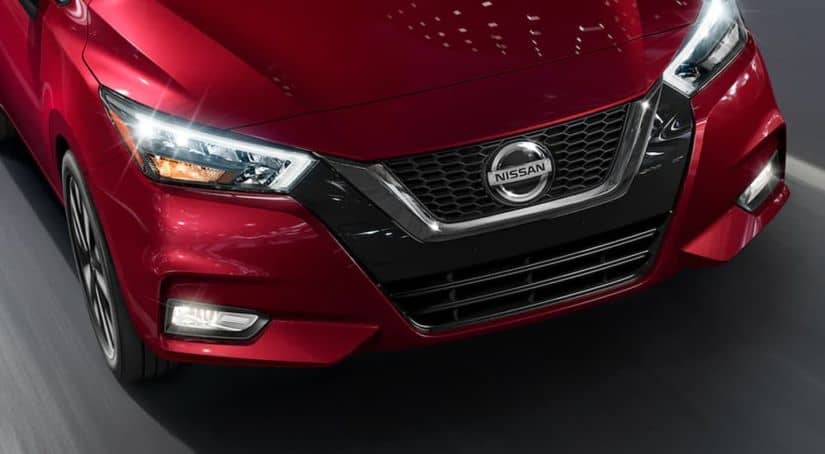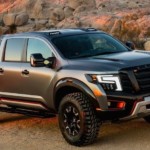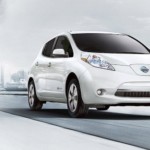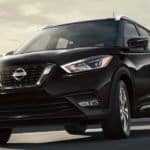Music, barbecue, and… cars? Just because we enjoy a bar crawl down Broadway doesn’t mean we don’t like our own ride to get from Germantown across the Cumberland River to East Nashville. Not to mention visiting all the great stuff between Bowling Green, KY, and Huntsville, AL. It’s always a good time to check out car dealerships in Nashville when you’re looking for a new Nissan. But which Nissan? And what is the best Nissan engine? Well, like most things, the answer is: it depends. Let’s learn more.
Victorious Quality
Nissan introduced the all-aluminum VQ V6 engine line two and a half decades ago with a 3.0-liter version in the 1995 Maxima. The engine didn’t just rank on Wards Auto’s first-ever “Ten Best Engines” list thanks to its lightweight internal parts – it inspired it. At the time, the VQ was a technological marvel thanks to all that aluminum, a cooling system that worked two ways to warm up the block more quickly, and micro-finished camshafts and crankshafts with molybdenum-coated pistons. Micro-finishing and molybdenum coatings reduce friction, thereby also increasing fuel efficiency.
The Nissan VQ line held a place on the Ward’s Best Of list for the next fourteen consecutive years and have made many appearances after that. These V6 VQs have been found in a wide variety of Nissan models over the years, with displacements from 2.0-liters to 4.0-liters and everywhere in between. The VQ has been such a successful engine because its six cylinders provide plenty of power and torque without requiring the two extra cylinders of a V8, making the smaller engine more fuel-efficient without compromising in performance. The VQ V6 also requires none of the turbo-charging or supercharging found on many four-cylinder engines, so there’s no delay required while waiting for the motor to spool up, just power when you want it. Nissan engineered the VQs to be exceptionally well-balanced, adding to a smooth ride while keeping the motor running reliably.
Nissan VQ engines have historically had conventional port fuel injection, which means less carbon accumulation than you can often find in more fuel-efficient direct injection engines. The VQ has had tweaks and changes since its introduction in 1994, with a big revamp for 2016 that increased torque at low and medium speeds while increasing fuel efficiency. The redesign included adding intermediate locking variable timing to the intake camshaft also, instead of just on the exhaust camshaft, and an overhaul of that exhaust camshaft. The 2016 VQ also has a better protective coating on the piston surfaces and piston rings, along with low-tension crankshaft oil seals.
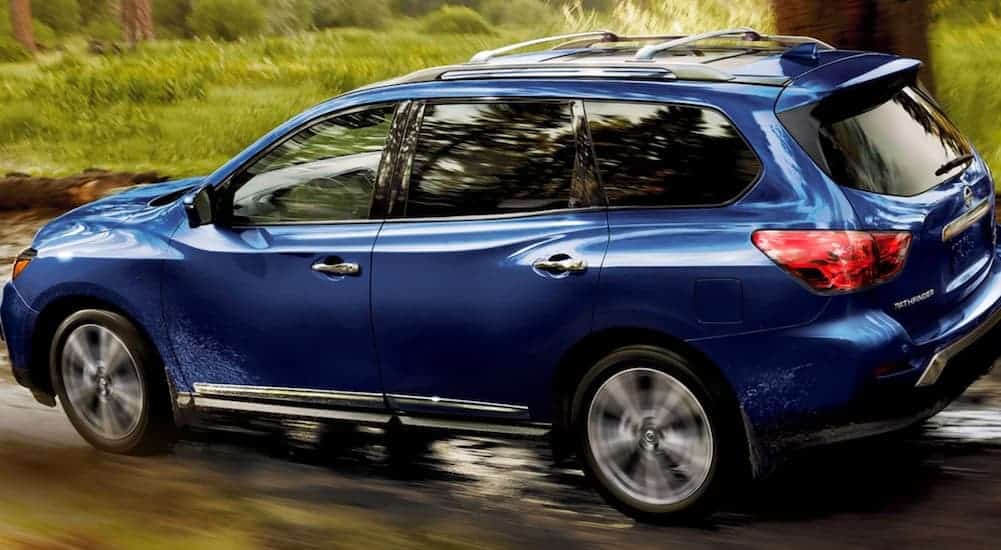
Brand-new Nissan Pathfinder SUVs still use a variation of the 3.5-liter VQ introduced in 2001. This engine provides 284 horsepower, and the EPA estimates its fuel economy as 20 MPG city and 27 MPG highway – not bad for an SUV with seating for seven. There’s also 6,000 pounds of maximum towing capacity, letting you easily tow some jet skis or a lightweight camper.
You’ll also find a classic VQ V6 engine in the new Nissan Maxima. This 3.5-liter engine averages 300 horsepower with a continuously variable transmission. This peppy and responsive engine has an EPA-estimated 20 MPG city and 30 MPG highway. While technically a full-size sedan, the Nissan Maxima has a lowered stance and a driver-focused suspension, making it feel much more like a sports car, thanks, in part, to that VQ.
The legitimately sporty 370Z’s current standard engine is a fourth-generation high-revving VQ V6 displacing 3.7 liters. This engine has a whopping 332 horsepower and 270 pound-feet of torque. Nismo, the motorsports branch of the Nissan family tree, even makes its own version of the 370Z VQ with up to 350 horsepower and 276 pound-feet of torque for the 370Z Nismo trim. With either engine, you can choose a six-speed manual transmission complete with SynchroRev Match technology for perfect throttling. The six-speed automatic option is also made for serious drivers with driver-selectable modes to let you custom tailor your driving experience.
The Nissan Frontier pickup truck comes with the direct injection VQ V6 3.8-liter engine. The most powerful Frontier since its debut in 1997, this variation of the VQ offers 310 horsepower with 281 pound-feet in torque, an EPA-estimated fuel economy of 18 MPG city and 24 MPG highway, and a maximum available towing capacity of 6,720 pounds. The current Nissan Frontier has advanced 4×4 technology paired with a tall frame and wide wheels to better cover whatever road or trail lies ahead of you.
And Now For Something Completely Different
While the VQ V6 engine may be the perfect marriage of power and efficiency in a gas engine, it’s time to meet the Nissan LEAF. A decade after its introduction, the LEAF is still a leader in the electric vehicle field. The standard LEAF has a 40 kWh lithium-ion battery paired with a 110 kW electric motor. This pairing results in 147 horsepower and 236 pound-feet of torque and allows for a driving range of 149 miles between full charges. However, if you upgrade to the LEAF PLUS with its 62 kWh battery and 160 kW motor, you’ll get 214 horsepower, 250 pound-feet of torque, and 226 miles of range.
Both LEAF motors can charge up to 80 percent in just 45 minutes with a quick charge port. You can also charge with a standard, three-prong 120-volt outlet or with a higher-powered 240-volt outlet like those used for the average clothes dryer. Nissan stands behind its LEAF motors with not one but two battery warranties lasting eight years or 100,000 miles on both the battery back itself and against battery capacity loss.
Standard on the LEAF is an e-Pedal, which allows for one-pedal driving: you can start, accelerate, decelerate, and even come to a full stop using just the “gas” pedal. ProPILOT assist – standard on the LEAF PLUS and available on the base model – combines Nissan’s patented Intelligent Cruise Control and steering assist technologies to help you handle stop-and-go commuting. The LEAF also comes with Nissan’s standard Safety Shield package, including automatic emergency braking with pedestrian detection, lane departure and blind spot warnings, a rear cross traffic alert and rear automatic braking, and high beam assist. All combined, this means that your LEAF isn’t just safe and efficient; it’s also fun to drive. All of those safety features and the peppy horsepower mean it’s a vehicle ready to take on whatever the city has to throw at you.
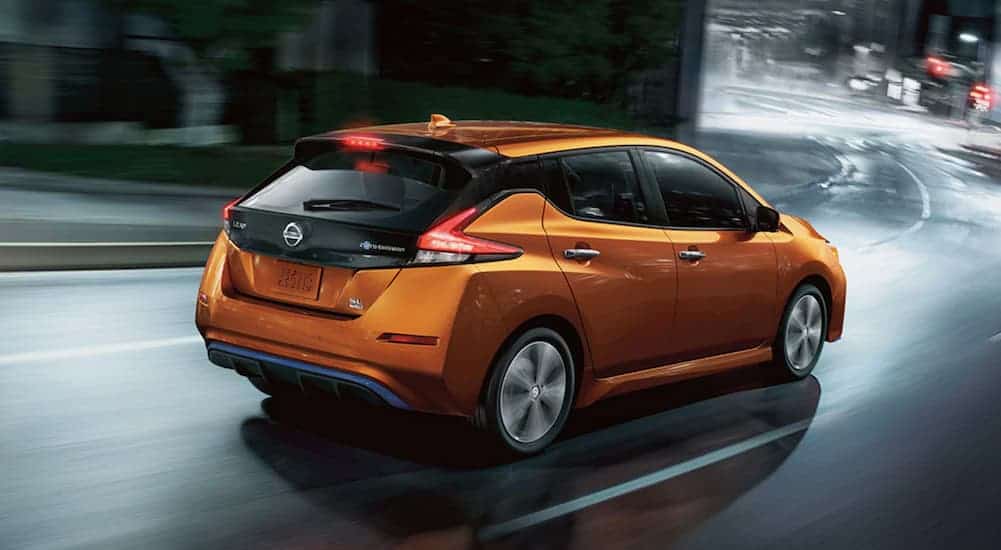
Not to Be Outdone
Even without a classic VQ or the technology of an electric powertrain, there’s still a lot to love about the current Nissan line’s engines. For example, the third generation of the subcompact Nissan Versa’s engine is a 1.6-liter 4-cylinder engine with an above-average 122 horsepower and 114 pound-feet of torque. The slightly larger but still compact Nissan Sentra is currently in its eighth generation, and it comes with a 2.0-liter DOHC 4-cylinder engine with 149 horsepower and 146 pound-feet of torque, a double digit increase over its predecessor.
The Nissan Rogue is a true example of the sport utility segment with the drivability of a car merged with a larger footprint, sitting higher and hauling more while still being easy to drive. Its current engine is a direct injection 2.5-liter four-cylinder with 181 horsepower and 181 pound-feet of torque, an increase over previous models. The full-size Nissan Titan pickup has an appropriately upsized V8, a 5.6-liter Endurance engine with 400 horsepower and 413 pound-feet of torque, the best in its class. It can also tow up to 11,040 pounds.
Music City Motoring
Nissan has continually grown and innovated since it was a twinkle in Yoshisuke Aikawa’s eye in 1928. Just five years later, it appeared on the Tokyo stock exchange, and thirty years later, it had a place in American car manufacturing. Nissan has spent many years building on and improving its high-quality VQ engine, a perfect blend of power and efficiency. But Nissan is also a leader when it comes to electric vehicle engines. And even those vehicles in the Nissan line that use neither engine are no slouch when it comes to having plenty of pickup and power, perfect for your next work truck or family car. When you’re looking for your next new car, be sure to check out car dealerships in Nashville to find the perfect Nissan for you.
